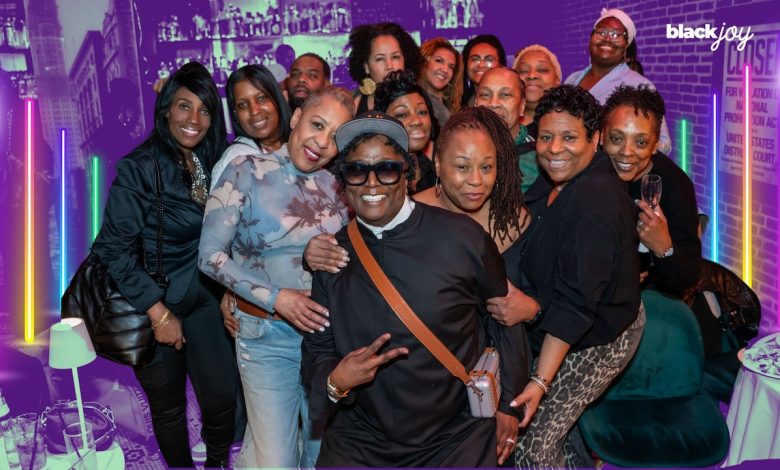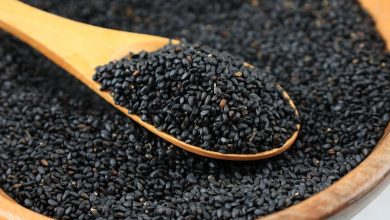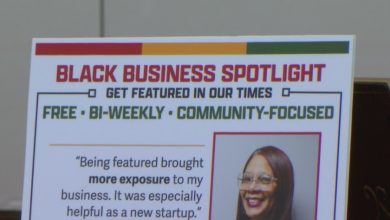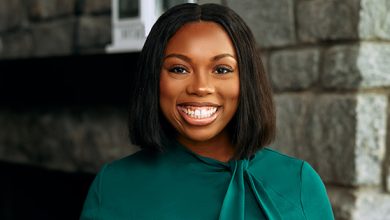N.J. Black Pride creates joyful safe havens for LGBTQ people during hostile times

Want more Black Joy? Sign up for the Black Joy newsletter for positive, uplifting Black stories in your inbox three times a week! If you want to share a Black joy related story from New Jersey, please email Jonece Starr Dunigan at jdunigan@njadvancemedia.com.
A new nonprofit is filling the gaps of community building and collective care for Black LGBTQ+ individuals in the Garden State.
East Orange resident Cheryl Lathan and Newark native Deborah Glenn launched New Jersey Black Pride in March with a mission to empower their people through service, advocacy and a little fun. Within the first three months alone, the organization has hosted a series of events that have helped queer business owners connect with one another, fed the hungry and strengthened a sense of belonging in their community. Today, Lathan and Glenn will join local leaders and artists for the eighth annual East Orange Pride Celebration at City Hall from 4 p.m. until 7 p.m. A fashion show, live entertainment and a marketplace of local vendors will be part of the festivities honoring the jubilation and authenticity of LGBTQ+ life.
“East Orange Pride reflects the very heart of New Jersey Black Pride’s mission,” Lathan said. “Both Deborah and I want to show what it means to partner with municipalities in a way that centers our community, creating safe, joyful, affirming spaces where we are not just included, but prioritized.”
New Jersey Black Pride is creating affirming safe spaces during politically hostile times. Last week, the U.S. Supreme Court upheld a Tennessee ban on gender-affirming medical services for youth. The 6-3 decision doesn’t immediately affect New Jersey, which has been a safe haven for those seeking transgender healthcare since Gov. Phil Murphy signed an executive order in 2023. But LGBTQ+ rights advocates are now pushing legislators to make those protections permanent by codifying into state law.
The decision was made after an intense legislative season where lawmakers filed the most anti-LGBTQIA+ bills ever in United States history. According to the Williams Institute, hateful rhetoric has made queer people more vulnerable to harassment and discrimination. LGBTQ+ people are five times more likely than non-LGBTQ+ people to be a victim of a violent crime, with Black queer people having the highest rates of victimization overall.
To deepen the harm, Lathan said there’s segregation within the LGBTQ+ community itself. Lathan, who is originally from Brooklyn, was taking pictures for a past pride event in New York when she witnessed how white promoters took over the clubs, leaving Black promoters out of the festivities.
“So we’re just invisible, and I have a problem with that,” Lathan said. “So we got to create our own group. That’s why we have New Jersey Black Pride to do stuff for Black people.”
While there are many divisions taking place today, Lathan and Glenn remember when times were different. During the 80s and 90s, house music emerged as Newark’s signature sound. Glenn and Lathan would fill their weekends dancing at different clubs like Zanzibar, Murphy’s First Choice and Armory. These venues would host specific nights for the LGBTQ+ community, but Lathan said who they were didn’t matter. The electronic beats that pulsed through the air became a great unifier for everyone on the dance floor.
“House music created a place where people can go to be free, dance, find your little groove and your tribe,” Lathan said. “It was just one love. Everybody was happy and enjoying the music.”
The scene started to fade away during the early 2000s, but the duo continued to create safe spaces for Black queer women. Glenn gathered the girls at Armory and Lathan built a space called One Hot Spot in Brooklyn. While they enjoyed fun times together, Glenn said that sense of togetherness is what is missing in the community nowadays.
“It just didn’t matter if you were gay, straight, everybody was just having a good time with each other, and nobody questioned it. You just do your own thing.” Glenn said. “Those were the good old days. Bring that back.”

Cheryl Lathan (left) and Deborah Glenn (right), founders of New Jersey Black Pride, pose for a photo during a queer networking event in April.Blu Photo Art
While there are many divisions taking place today, Lathan and Glenn remember when times were different. During the 80s and 90s, house music emerged as Newark’s signature sound. Glenn and Lathan would fill their weekends dancing at different clubs like Zanzibar, Murphy’s First Choice and Armory. These venues would host specific nights for the LGBTQ+ community, but Lathan said who they were didn’t matter. The electronic beats that pulsed through the air became a great unifier for everyone on the dance floor.
“House music created a place where people can go to be free, dance, find your little groove and your tribe,” Lathan said. “It was just one love. Everybody was happy and enjoying the music.”
The scene started to fade away during the early 2000s, but the duo continued to create safe spaces for Black queer women. Glenn gathered the girls at Armory and Lathan built a space called One Hot Spot in Brooklyn. While they enjoyed fun times together, Glenn said that sense of togetherness is what is missing in the community nowadays.
“It just didn’t matter if you were gay, straight, everybody was just having a good time with each other, and nobody questioned it. You just do your own thing.” Glenn said. “Those were the good old days. Bring that back.”
One of New Jersey Black Pride’s first get-togethers exemplified the power of supporting each other. In April, about 26 Black LGBTQ+ entrepreneurs shared their skills and established new connections during a queer networking event. Building a business within the intersections of race, gender and sexuality comes with its own challenges. Both COVID-19 and corporate divestment from diversity, equity and inclusion efforts have disproportionately affected Black-owned businesses in general. There aren’t any federal laws protecting LGBTQ+ business owners from discrimination from customers.
Lathan said the queer networking event was such a success, she foresees the organization creating an app where LGBTQ+ entrepreneurs can connect with new clientele for different services.
“We are trying to create our own ecosystem within our own network,” Lathan said. “Instead of going outside our community and calling ‘Joe Hammer’ or something, we can call Renee. She’s a caterer who owns a business.”
The nonprofit organizes fun outings to make sure no one feels isolated. In May, attendants laughed and cheered during “Not Your Grandma’s Bingo” night. Lucky players won gift cards, T-shirts and a painting created by Lathan herself. Glenn said people wanted to play more rounds even after all the prizes were claimed, which speaks to the type of environment New Jersey Black Pride is creating.
“It’s just a safe space for someone to come and just be yourself. That’s what we’re trying to do for everybody,” Glenn said. “There’s a lot going on and you can’t be doing too much. Certain people are about it and some people will look at you crazy. So this is a space where there’s no judgment. Everybody’s good.”
The next event on New Jersey Black Pride’s calendar will be helping out those in need. On July 6, Glenn, Lathan and other volunteers will be handing out free groceries and meals at the WOW CommuniTEA Center at 45 Commerce Street from 11 a.m. until 1 p.m. According to the New Jersey Economic Authority, about 1.3 million state residents live in a food desert. With food costs continuing to rise, Lathan said the organization wanted to be part of the solution.
“Everybody is struggling right now,” Lathan said. “So if we’re able to get food and help, that’s what community looks like. You got to show up.”
The future of New Jersey Black Pride looks like starting community-centered programs, establishing wellness centers across the state and supporting Black queer artists. Lathan said additional funding is needed to help make this vision possible since much of the expenses are currently being paid out-of-pocket. Anyone who wishes to help can send their donations via Zelle to info@njblackpride.org.
Lathan is looking forward to expanding the nonprofit’s impact by collaborating with other groups on the southern end of the state or anyone who is looking to make a change in their area. Doesn’t matter if they live in a city center or rural area, everyone deserves to be heard, she said.
“Wherever there’s Black people that’s not being seen, we can partner with them to start doing something with the locals,” Lathan said. “If they already have something in place, we can come in and build something together. That’s the vision.”




